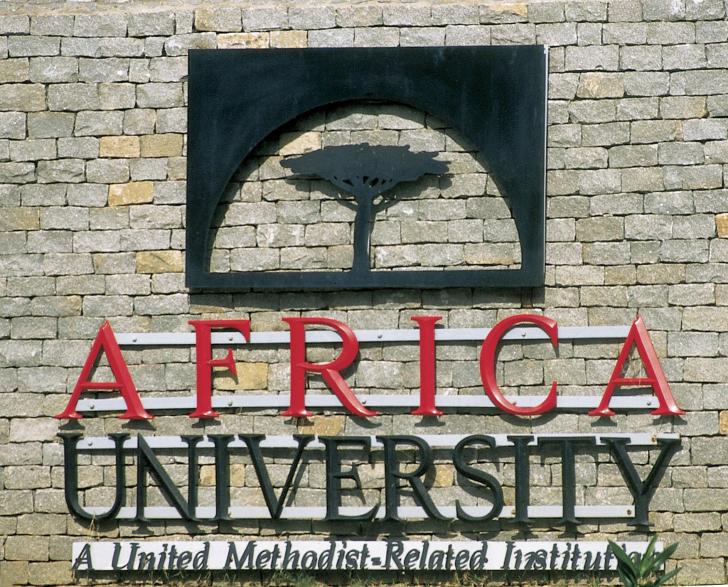News / National
AU pushes for increased maize, sorghum production
17 May 2025 at 11:14hrs |
0 Views

Africa University has launched a major initiative aimed at enhancing food security in Manicaland by training thousands of smallholder farmers in improved maize and sorghum farming techniques. The programme, known as Transforming Africa Agricultural Universities to Meaningfully Contribute to Africa's Growth and Development (TAGDEV 2.0), will also equip 16,000 young women and men with vital entrepreneurship and skills development training.
TAGDEV 2.0 is a 10-year project funded by the Mastercard Foundation in partnership with the Regional Universities Forum for Capacity Building in Agriculture (RUFORUM). It seeks to transform agricultural education and extension services, focusing on inclusive, entrepreneurial, and digitally-oriented youth development.
The initiative will support training institutions to establish business incubation policies and revise academic curricula to better prepare young people for modern agricultural challenges. A key aspect of the project is capacity building for extension agents, enabling them to disseminate agricultural innovations and best practices - such as the government-led Pfvumvudza conservation farming programme - more effectively to smallholder farmers.
Officially launching TAGDEV 2.0, Minister of State for Manicaland Provincial Affairs and Devolution, Advocate Misheck Mugadza, emphasized the importance of partnerships in driving sustainable development.
"The TAGDev 2.0 Project is focused on linking agricultural universities to communities through knowledge generation and skilling of youths along agricultural value chains. This phase will concentrate on maize and sorghum production, aiming to reach 20,000 smallholder farmers and 16,000 young women and men with entrepreneurship and skills training," said Minister Mugadza.
He also highlighted the project's commitment to inclusivity, aiming to engage 70% young women, 25% refugees, and 15% persons living with disabilities, reflecting the diverse youth population of Manicaland.
"Technical and vocational education institutions like Magamba and Mutare Polytechnic will play key roles in expanding climate-smart agricultural practices and entrepreneurship training," Mugadza added.
Africa University Vice-Chancellor, Professor Peter Mageto, noted that evolving challenges such as climate change demand innovation and partnerships to address hunger and poverty effectively.
"Our vision is to produce holistic transformational leaders, not only for Zimbabwe but for the entire African continent. Our collaboration with RUFORUM and the Mastercard Foundation exemplifies this commitment," said Professor Mageto.
He stressed that agriculture is rapidly changing and called for embracing new technologies and innovations to shape the future of farming.
"With continued government support and strong partnerships with local universities and communities, starting with Manicaland, we expect TAGDEV 2.0 to be a transformative programme that uplifts agriculture and youth empowerment," Professor Mageto concluded.
The TAGDEV 2.0 initiative marks a significant step towards sustainable agricultural development, food security, and inclusive economic growth in Manicaland, promising long-term benefits for smallholder farmers and youth across the region.
TAGDEV 2.0 is a 10-year project funded by the Mastercard Foundation in partnership with the Regional Universities Forum for Capacity Building in Agriculture (RUFORUM). It seeks to transform agricultural education and extension services, focusing on inclusive, entrepreneurial, and digitally-oriented youth development.
The initiative will support training institutions to establish business incubation policies and revise academic curricula to better prepare young people for modern agricultural challenges. A key aspect of the project is capacity building for extension agents, enabling them to disseminate agricultural innovations and best practices - such as the government-led Pfvumvudza conservation farming programme - more effectively to smallholder farmers.
Officially launching TAGDEV 2.0, Minister of State for Manicaland Provincial Affairs and Devolution, Advocate Misheck Mugadza, emphasized the importance of partnerships in driving sustainable development.
"The TAGDev 2.0 Project is focused on linking agricultural universities to communities through knowledge generation and skilling of youths along agricultural value chains. This phase will concentrate on maize and sorghum production, aiming to reach 20,000 smallholder farmers and 16,000 young women and men with entrepreneurship and skills training," said Minister Mugadza.
He also highlighted the project's commitment to inclusivity, aiming to engage 70% young women, 25% refugees, and 15% persons living with disabilities, reflecting the diverse youth population of Manicaland.
Africa University Vice-Chancellor, Professor Peter Mageto, noted that evolving challenges such as climate change demand innovation and partnerships to address hunger and poverty effectively.
"Our vision is to produce holistic transformational leaders, not only for Zimbabwe but for the entire African continent. Our collaboration with RUFORUM and the Mastercard Foundation exemplifies this commitment," said Professor Mageto.
He stressed that agriculture is rapidly changing and called for embracing new technologies and innovations to shape the future of farming.
"With continued government support and strong partnerships with local universities and communities, starting with Manicaland, we expect TAGDEV 2.0 to be a transformative programme that uplifts agriculture and youth empowerment," Professor Mageto concluded.
The TAGDEV 2.0 initiative marks a significant step towards sustainable agricultural development, food security, and inclusive economic growth in Manicaland, promising long-term benefits for smallholder farmers and youth across the region.
Source - zimpapers
Join the discussion
Loading comments…






































